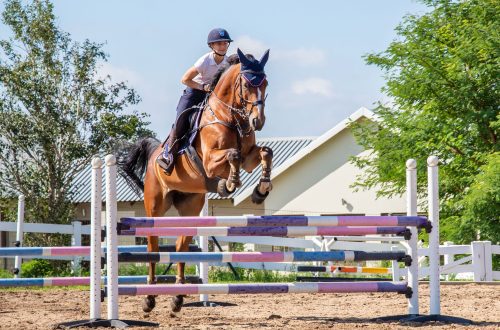
Obedience to messages. Occasion.
Obedience to messages. Occasion.
We all know that the horse must understand the messages, namely to listen and hear the actions of the leg, lumbosacral region, body and arm. But how do you check if the horse understands your commands correctly? Let’s start with the occasion. What is an indication that the horse is in contact with you, looking for your hand, not afraid of the action of the iron. There are several test exercises.
1. Moving in a straight line and without changing the influence of the body, leg and waist, gradually release the reins, give it to the horse. If the horse accelerates, if the position of his head has not changed and the reins are slack, then your horse does not understand you, he does not cooperate with you and does not trust your hand. When the reins are released, a properly ridden horse will follow. She will pull her neck down forward as much as you give up on the reins. She will not be reset from contact, i.e. the feeling of weight in your hand will not change. In this case, the rhythm of movement will not change. A horse that has accelerated not only does not know how your reins work, but also does not know the correct body, leg and loin commands. This is a horse that is restrained by the reins, which may be afraid of the rider and try to “run away” from under him. Or it is a horse that has not been ridden and simply does not drop the rider in the three main gaits, but does not have the slightest idea about interacting with him. A horse that hasn’t reached for the bit may not be aware of relaxation, or may not trust the rider’s hand. She chose the working position of the neck and head, which also suits the rider, and works only in this position. Such a horse is often clamped and tense.
2. Still moving in a straight line without changing the impact of the leg, body and lower back, raise your hands slightly up, then lower them down. As with the release of the reins, the horse must follow your hands, follow them without a fight and raise or lower his head in contact. The rhythm of the gait is preserved, the horse is relaxed. If the horse throws his head sharply, pulls the reins down or refuses to change the position of his head, stops, starts shaking his head, then there can be no talk of accepting the reins.
3. We keep the movement in a straight line, without changing the action of the body, legs and lower back and try to take first the left and then the right hand to the side. If the horse turned, then he does not understand the impact of your body, does not hear it. If you move your left hand to the left or your right hand to the right while driving in a straight line, your horse should not lunge and turn, he should reach for his hand, bend at the back of the head, make a decision and continue to move forward, uninhibited and free. You can do the same exercise on a stopped horse. If the horse maintains contact, is relaxed, you freely turn his head to the left and right, then your horse interacts correctly with the reins, understands messages, is relaxed and relaxed at the back of the head.
The “treatment” for these problems is trust and relaxation. Train your horse at a trot, try to use the reins as little as possible, or even completely eliminate the work of the hands. Focus on the messages from the body, leg, lower back. Maintain the same rhythm, not sluggish, but not rushed. If the horse is still in a hurry, do not try to limit his speed with the reins, work with the body, set your rhythm and pace until the horse calms down and relaxes. It’s a long job. Over time, the horse will learn to relax and begin to lower the neck and head forward, reaching down for the reins. Only when you have achieved this can you very slowly and gradually pick up the reins and lift the horse’s head. Take your time. Don’t try to do everything at once. Praise your horse often. Remember, if the horse starts yanking on the reins, jerking his head up, take a step back and start again. This is especially true for horses that have already been spoiled by someone, afraid of a hard hand.
Valery Smirnova (personal page of the author in VK)





